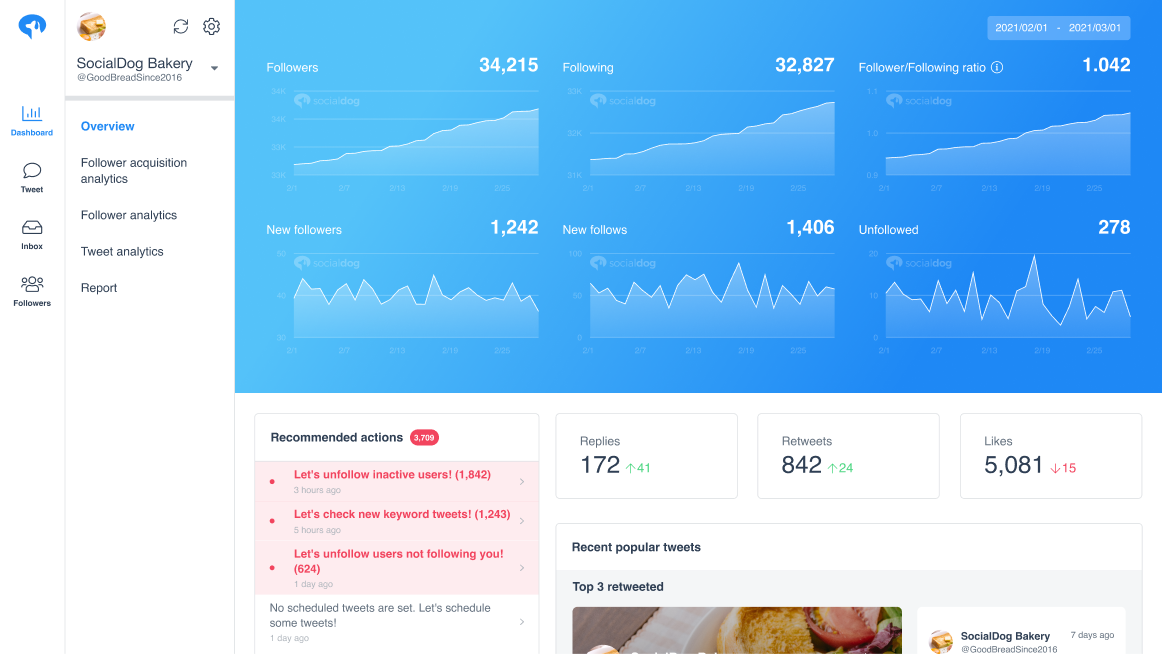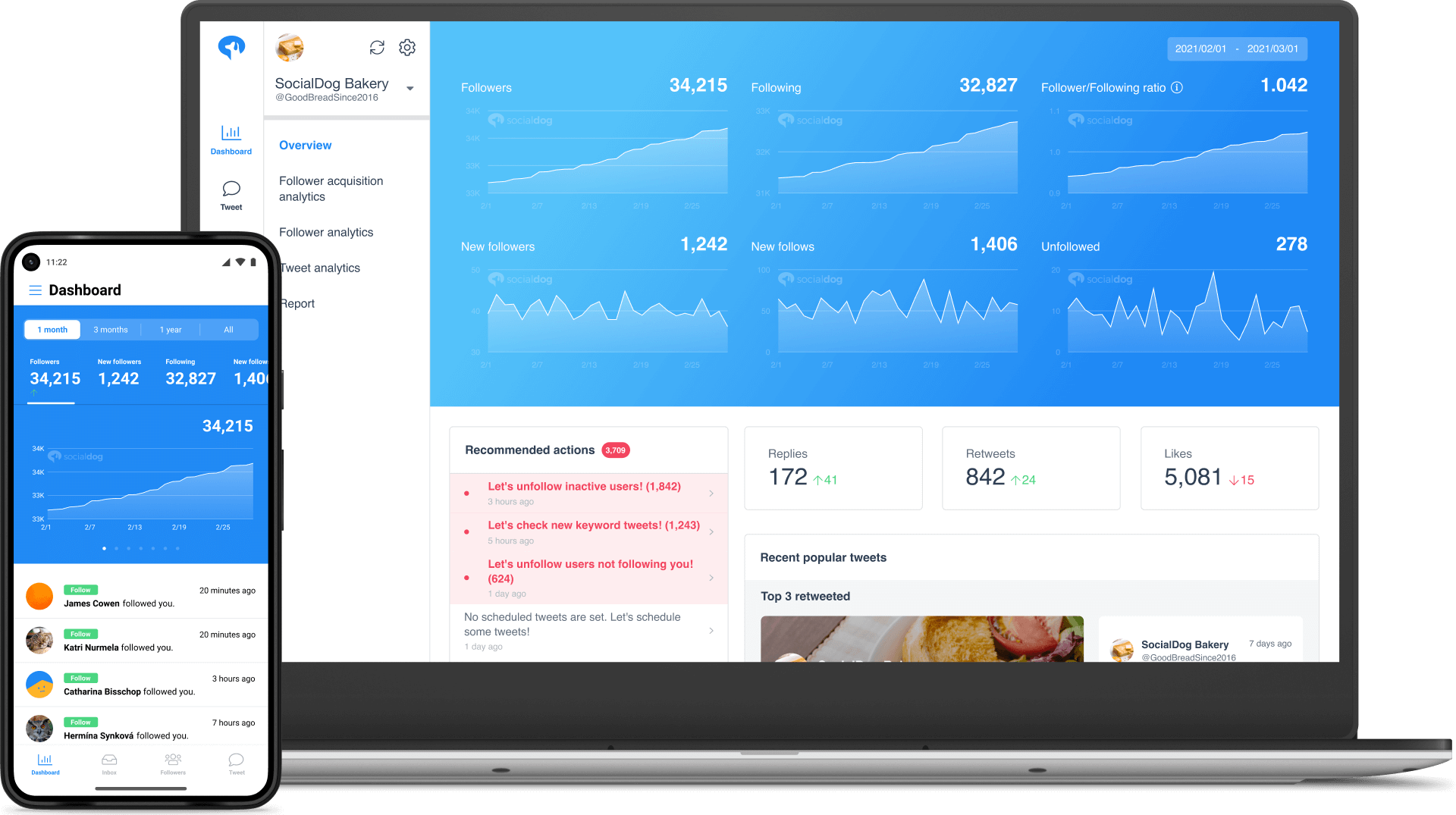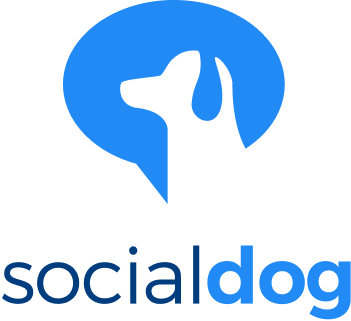- Why Should You Combine Google Analytics with Twitter?
Why Should You Combine Google Analytics with Twitter?
Do you want to get better outcomes from your social media marketing strategies? Learn how to understand your Twitter followers and build an appealing presence by integrating your Twitter with Google Analytics.

Contents
What is Google Analytics?
Every business needs to understand its customers to improve marketing and generate better ROI. That’s where Google Analytics comes into the picture.
Google Analytics is a web analytics toolbox with all the free tools you need for data analysis and better decision-making.
It unlocks the complete data of your customers’ life-cycle and helps you draw accurate insights from performance data. You can integrate your online businesses and social media platforms with Google Analytics. Twitter and Google Analytics work together perfectly to track your Twitter performance and convert these insights into results.
This tool seamlessly integrates with solutions like Google Ads, Search Ads 360, Google Cloud, Salesforce Marketing Cloud, Google AdSense, and others. Using Google Analytics, you can quickly create shareable reports, measure CRM, points of sale and monitor other first-party data sources for a holistic view.
How are Google Analytics and Twitter Analytics Different?
Google Analytics and Twitter Analytics are powerful tools used to gather data and insights about website and social media performance, but they have some key differences.
Google Analytics
Primarily focuses on website data analytics
Tracks various metrics like website traffic, visitor behavior, and conversions
Provides in-depth information about your audience, such as their demographics, interests, and the sources that brought them to your website
Helps measure the effectiveness of your marketing campaigns and identify popular content
Shows user engagement stats
Twitter Analytics
Specifically focused on Twitter
Provides valuable data related to your Twitter account and its performance
Offers data on your followers, including their demographics, interests, and location
Tracks the engagement of your tweets, such as the number of impressions, likes, retweets, and replies
Analyzes the performance of specific tweets
Tracks follower growth and identifies influential followers
While Google Analytics reflects the potential of your overall online presence, Twitter Analytics is the key to your strategic growth on Twitter.
You can log in to Twitter Analytics on a desktop or laptop by visiting Twitter Analytics website. You can also access Twitter Analytics on the mobile app through the analytics icon available on each tweet.
Google Analytics is easily accessible by visiting Google Analytics website on any device. Sign up by filling in all the necessary details to start measuring traffic instantly.
Both these tools combined can help you make data-driven decisions to enhance your online performance.
Does Google Analytics Work on Twitter?
Google Analytics and Twitter Analytics have plenty of differences, so you might wonder if Twitter and Google Analytics even work together.
The answer is twofold:
Yes, Google Analytics can analyze the traffic coming to your Twitter account and provide in-depth data on the visitors.
No, it can’t directly integrate with Twitter Analytics to track individual actions.
The Twitter Analytics dashboard provides valuable metrics such as tweet impressions, engagements, and audience demographics. You can use Google Analytics to complement Twitter Analytics and track profile visits on the website.
You can also track specific Twitter campaign data in Google Analytics by implementing UTM parameters in shared links. UTM parameters allow you to identify the source, medium, and campaign name associated with each link, providing insights into the effectiveness of your Twitter strategies.
While Google Analytics may not offer direct tracking on Twitter, leveraging Twitter’s built-in analytics while utilizing UTM parameters can help marketers gather valuable data and make data-driven decisions to enhance their online performance.
How to Use Google Analytics with Twitter?
Twitter’s free analytics dashboard is loaded with metrics to monitor your account’s growth and reach. But you should use more tools to gather data and draw insights to get ahead of the competition. Combine both Google Analytics and Twitter Analytics to learn more about your Twitter activities, followers, the best time to post, and the impact of your social media strategy on your business and brand.
Track Twitter Interactions on Your Website
You can track Twitter interactions on your website and measure their effectiveness in just a few steps:
Create a Twitter tracking link
Use Google’s URL Builder tool to generate a unique tracking link.
Enter your website’s URL, campaign source as “Twitter,” and campaign medium as “social.” This approach will help you track specific Twitter interactions leading to your website.
Shorten the tracking link
Use a URL-shortening service like Bit.ly to create a user-friendly tracking link. This allows you to easily share the link on Twitter. Plus, shortened URLs are easier to look at, click, and share.
Use the short tracking link whenever you share something you want to track. It could be a blog post, landing page, or any other web page you want to monitor.
Monitor Twitter interactions in Google Analytics
In your Google Analytics account, navigate to Acquisition > Campaigns > All Campaigns.
Here, you can view the performance of all your Twitter interactions. You’ll see all metrics like the number of sessions, bounce rate, and conversions driven by Twitter.
Track Organic Twitter Traffic by Default
By default, Google Analytics tracks traffic sources from Twitter. To specifically identify organic Twitter traffic, follow these steps:
Sign in to Google Analytics
Sign in to your Google Analytics account and go to “Acquisition” > “All Traffic” > “Source/Medium.”
Analyze the Twitter traffic
You’ll see a table with a graph showing your Twitter progress. In the table, locate the sources mentioned as twitter.com or t.co. Ensure the medium is “referral,” indicating the visitors have come from a different site. Change a few parameters on the sheet to get more information about your Twitter traffic.
Alternative Method
The same data on Twitter traffic is also available in the “Social” row. Click on it to expand the data. Scroll down to find “Twitter” and click on it.
You can check the performance of your organic Twitter traffic, including metrics like sessions, page views, and conversions.
Track Paid Twitter Campaigns
If you promote your tweets, Google Analytics is one of the best tools to measure the effectiveness of your paid campaigns. You first need to set up UTM parameters to track Twitter ads through Google Analytics:
Create UTM parameters
You can simply use Google’s URL Builder tool to generate unique UTM parameters for your paid Twitter campaigns.
Specify the campaign source as “Twitter (twitter.com),” the medium as “paid,” and add any additional details as needed.
Append UTM parameters to your campaign URLs
Add the generated UTM parameters to the URLs used in your paid Twitter campaigns. This will ensure that Google Analytics tracks and attributes the traffic correctly.
Monitor campaign performance
In Google Analytics, navigate to “Acquisition” > “Campaigns” > “All Campaigns” to monitor the performance of your paid Twitter campaigns. You can analyze metrics like sessions, goal completions, and revenue generated by each campaign.
You can also visit “Acquisition” > “All Traffic” > “Source/Medium” report to check the column with the heading “Twitter / Social.” This is the Twitter traffic generated from your paid promotions.
Types of Twitter Ads
Twitter is an impressive platform for advertising as you get various customizable options to choose your target audience. You can also define your objectives—boosting reach, video views, app installs, followers, engagement, and so on. With such personalized options, Twitter offers various types of ads to help you promote your brand and reach a wider audience on the platform.
Now that you’re a pro in tracking your Twitter growth with Google Analytics, let’s walk you through the types of Twitter ads most people track with Google Analytics.
Website Cards
Website cards are designed to drive traffic to external websites.
Key features of Website Cards include:
Engaging visuals, a compelling headline, and a brief description to capture users’ attention
Call-to-action buttons like “Learn More,” “Shop Now,” or “Sign Up” which encourage users to take action and visit your website
Expandable tweet format, which reveals additional information and a preview of the linked webpage when the user clicks on it
Promoted Tweets
Promoted tweets seamlessly appears in your audience’s Twitter feed alongside organic tweets. To improve reach, use trending hashtags. If including link, use the shortened version to increase engagement.
Significant features:
Reaching users who don’t follow your account to expand your reach and potential customer base
Targeting specific demographics, interests, and locations to ensure your tweets reach the right audience
Allowing likes, retweets, and reply features like organic tweets that help create brand awareness and amplify your message
Promoted Videos
Promoted videos allow you to share compelling video content with 280 characters of copy that can reach a broader audience. To get the maximum benefits from these promoted videos, optimize them for mobile devices and instantly communicate your message.
Twitter also offers detailed analytics for these videos to understand their impact and refine your strategy.
Must-haves in promoted videos:
Great storytelling that encompasses your brand to engage the audience
Autoplay to instantly capture the attention of users and make them stop scrolling
Branded Assets
Branded Assets, or Promoted Trends, are Twitter’s premium advertising offering. Your brand can own a “trend” for 24 hours to guarantee maximum exposure. These branded assets provide maximum visibility and are often used for special events, product launches, or significant campaigns.
Major features of branded assets:
Exclusive brand placement in the “Trending” section on users’ timelines and in the “Explore” tab
Your promoted hashtag or keyword can become the popular trend of the day, boosting your brand recognition and creating conversations around it.
These trending pieces also create widespread awareness of a trending topic as more users engage with your promoted hashtag(s)
Use Google Analytics Alongside Twitter Analytics
Twitter Analytics is always accurate, and Google Analytics builds upon this data to target the audience at the right time with the help of data-backed insights. Google Analytics makes your Twitter strategies more focused on growth and expansion.
But why stop there?
Alongside these two powerful tools, you can also integrate SocialDog to make your Twitter growth journey more efficient and effective.
SocialDog can share your tasks of Tweet scheduling, account management, and analytics to streamline your social media workflow. With SocialDog, your Twitter followers’ analytics is bound to get a boost, as your consistency and engagement rate increase.
Check out SocialDog and get their Pro Plan free of cost for 7 days.
Start early and watch your Twitter network thrive with the help of some great data analytics and management tools like Google Analytics, Twitter Analytics, and SocialDog.
All-in-one tool for Twitter marketing

SocialDog has contributed to growing the followers of accounts of both companies and individuals. A range of features are provided to help you efficiently increase followers.
The most read articles of the moment

How to Schedule Tweets to Maximize Reach and Engagement
No matter your reason for using Twitter, whether it is for personal or professio...
Related Article

Best Twitter Hashtag Tools For Brand Building in 2023
Twitter users share about 6,000 tweets every second. Keeping track of relevant tweets for brands gets difficult. Hashtags make it easier to find tweets and trending topics relevant to your business – and can be a powerful tool for building your brand. In this article, we’ll discuss Twitter hashtag tools that can help you grow on Twitter. Contents What is a Twitter Hashtag Tool?How to Track Twitter…

How to Use Twitter Impressions Tool to Gauge Content
Understanding your Tweets performance is critical for effective campaign management. Using a Twitter impressions tool is one way to know whether your content has the right exposure or resonates with the audience. Read on to learn how Twitter tools can help monitor tweet impressions. Contents What are Twitter Impressions?Why You Should Monitor Your Twitter ImpressionsUnderstand exposureDetermine the success of your advertisingIdentify trendsUnderstand audience qualityIdentify hashtags helping your…

3 Best Twitter Engagement Tools to Maximize Your Business
Twitter not only keeps you up to date with the latest news but also helps your business engage with your audience organically. It is estimated that the average user of Twitter follows at least five businesses, and 89% of users use Twitter to find new products and services. It highlights the potential for businesses to reach a wide audience and generate leads. However, due to high competition…

The Best Twitter Card Validator Tools You Need Right Now
Twitter is a goldmine for content marketing, receiving 6,000 tweets every second. That’s 350k per minute or 200 billion a year. With so much traffic, it’s crucial to catch your audience’s attention quickly. And you do this with content that’s engaging, useful, and well-organized. Twitter Cards let your content speak volumes even within 280 characters. They make your tweets stand out with rich media like images, videos,…

How to Use a Twitter Debugger Tool to Preview Twitter Cards
Creating appealing posts with Twitter Cards leads to more engagement and conversion. But before posting you should validate and preview your tweets to see how they will appear. Read on to learn how Twitter debugger tools can help debug and validate your Twitter Cards. Contents What is a Twitter Debugger Tool?Why You Should Use a Twitter Debugger Tool Identify meta tagsCheck validation instantlyTroubleshoot Twitter card problemsHow to…
Recommended Articles

How to Schedule Tweets to Maximize Reach and Engagement
No matter your reason for using Twitter, whether it is for personal or professional use, scheduling tweets to maximize your reach and engagement is critical for growth in an oversaturated market. Currently Twitter is one of the most popular social media platforms and is growing ever crucial to promoting your business. It may seem difficult at first, with so many options to choose from to schedule your...
New Articles
-
 Instagram Business Analytics: Everything You Need To Know
Instagram Business Analytics: Everything You Need To Know
-
 Instagram Hashtag Analytics: How To Use Them For Brand Promotion
Instagram Hashtag Analytics: How To Use Them For Brand Promotion
-
 How to Track Instagram Stories and Use Them
How to Track Instagram Stories and Use Them
-
 How To Get Instagram Analytics For Your Business Campaign
How To Get Instagram Analytics For Your Business Campaign
-
 Instagram Analytics: How to Check Other Accounts or Competitors?
Instagram Analytics: How to Check Other Accounts or Competitors?

Essential tools for
X (Twitter) Marketing
SocialDog can be used by people who don't have the time for it, or by people who are serious about it. It also has features and support to help you get results, even if you don't have the time, even if you're serious about it.
 Get Started Now
Get Started Now



